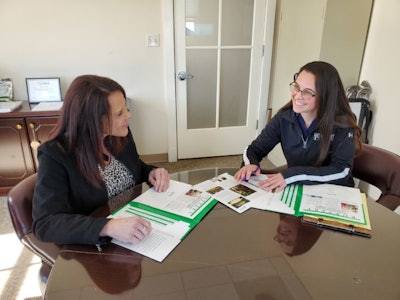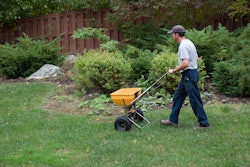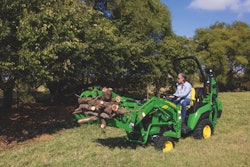
While conversation—or communication in general—comes naturally to some, for others it is a struggle. Of course, as a landscape business owner or manager, you need to be on your game when it comes to communicating with your team, clients, and prospective clients. It can be frustrating when conversations don’t go as planned—or when you feel as though communication is not clear.
Jason Dixon, director of business development for Ruppert Landscape, headquartered in Laytonsville, Maryland, says that even if communicating does not come naturally, there are some ways you can boost your skills.
Dixon shares some of his best tips for improving communication.
Plan ahead
While some conversations obviously happen spontaneously, Dixon says that if you know you have an upcoming meeting or even just a phone call that’s already planned, it can be really helpful to think ahead about what you need to talk about.
“The more you’re able to plan ahead—especially for challenging conversations—the more certain you’ll be that you deliver the message you want to,” says Dixon.
Take notes ahead of your conversation so that you have the talking points you want to cover.
Listen and pay attention
It might sound obvious, but actually listening and paying attention during a conversation is key to good communication. Too often we tend to get distracted.
“Be present and invested in your interactions,” says Dixon. “Also, make sure you are actually understanding what the other person is saying.”
Be careful not to monopolize the conversation
Another place where conversations can go awry is when one party tends to monopolize it, says Dixon. This can be detrimental to good communication.
“Find ways to communicate more succinctly and with less fluff so that people don’t end up tuning you out,” he suggests. “Also, make a point to pause and ask if the other person has questions or required any clarification. This is a gesture that helps make people feel heard.”
Look for cues
It’s also helpful to remember that everyone communicates differently. Some people are very visual and may be focused on body language while others might be better at processing what’s actually being said. It helps to attempt to match your style of communicating with the other person, says Dixon.
Follow up
After you’ve had a conversation with someone—whether it was a coworker, a team member, a client, or someone else—it always helps to follow up. There is a good chance not everything you shared will be remembered the way you want it to be, says Dixon.
“By following up you can reiterate the key points you discussed and also highlight any action items that came out of the meeting,” Dixon sums up. “This adds a layer of accountability.”
While improving your communication skills might not be easy, it can really pay off by helping you to get more out of meetings and conversations. And like any other skill, working at it over time will make a difference. You'll start to find that people will appreciate your efforts to be a better listener and communicator.









